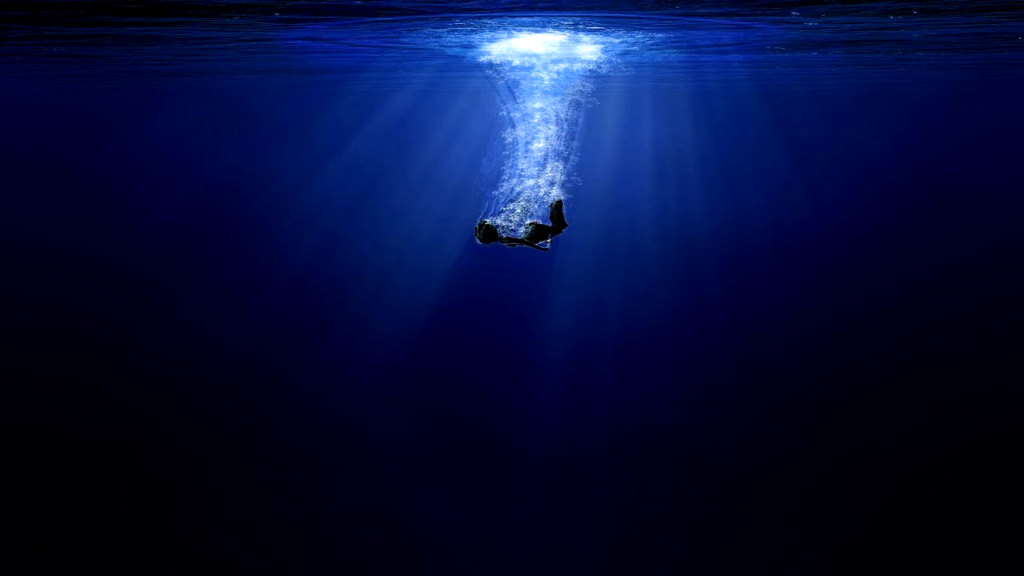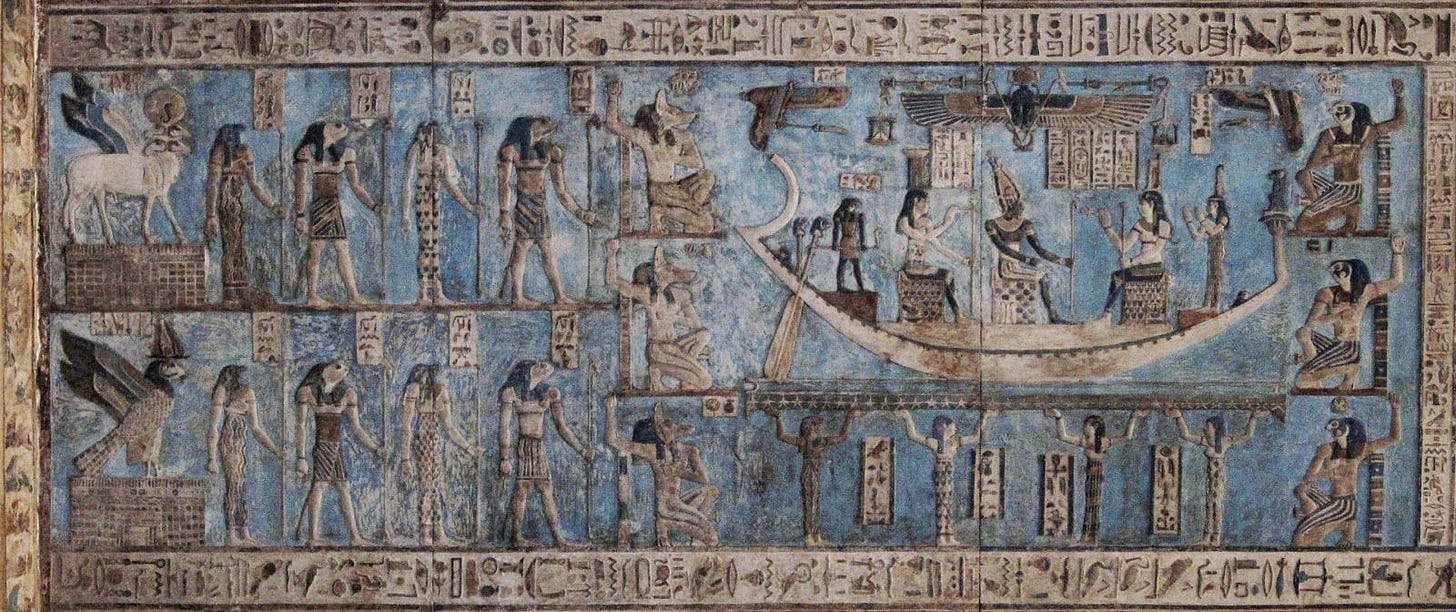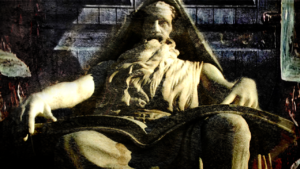The Abyss

Metaphysics of the Internet and virtual dynamism
Much is discussed on the Internet as utility, but few fully grasp the broader metaphysical implications of what it is. Beyond the routers and cabling lies a chaotic outpouring of conscious and unconscious material from all industrialized cultures. This “information network” is anything but recent. It was accessed by shamans and mystics long before Babbage was a lustful glimmer in his father’s eye. Ouroboros has remained coiled beneath the surface since time immemorial, and the Internet is only “new” in the sense that we now have an electronic interface with which to break his utterances into easily digestible morsels. In the far future, it is possible that this interface will be seen as the single most impactful invention in history, enough to break history itself in two.
While the global homogenization of humanity can be attributed to a myriad number of factors, the Internet is the only one that comes to mind without anything close to a historical precedent. One can look to the Tocharians, Kennewick Man, Cagayan battles, and other lesser known information to see that humanity has always been much more interconnected than the traditional view of history claims. What was never present, however, was the constant contact that the Internet brings. The boundaries of physical distance have been dissolved, resulting in an infinite splintering off of new communities based on ideologies or interests. Fringe belief systems whose adherents were once impassably separated by a sea of orthodox masses are now capable of assembling thousands of people united in their intentions. This opens a veritable Pandora’s box of potential directions for the culture of the future.
I believe that the anima mundi has always been a neutral entity towards humanity, and the Internet has been a net positive for me personally. I am not here to push the Boomer demonization that claims the Internet has ruined society. It has done little more than reveal what was already there, and what people are truly angry about is the fact that they can no longer bury their heads in the sand and hide from the parts of modernity that make them uncomfortable. If such people truly hated the Internet the way they claim to, they would trade in their smartphones or computers, or only use them for bare necessities. Everything once obscured has been thrust into the spotlight. It falls on us to decide how we feel about these things and act accordingly. However, I now wish to focus on the additive inverse to the revelation and dynamism that the Internet brings: an entity I have deemed the Abyss.
It has become redundant to point out the fact that everywhere you go, you see a horde of people with their eyes grafted to their phones. Those Lotus-Eaters who hemorrhage their waking hours “doomscrolling,” mindlessly bombarding their psyches with propaganda and repetitive content. Even in front of the television, they find themselves unable to devote an uninterrupted stream of fixation on the events of the film. Instead they desperately refresh their Facebook feed hoping there might be a new cat picture or update on their old classmate’s family vacation to passingly glance at. Anything to give them a reason to dive into the feedback loop once more. The hunger is never satisfied.
To fully appreciate the peculiarity of this phenomenon, we must first step back and examine the various ways that man partook in leisure throughout history. Carousing, reading books, pursuing lovers, watching films, everything that comes to mind shares a single characteristic: they all create a tangible memory of some kind and establish a point of reference in one’s story of the past. A moment that possesses enough content to be recalled in the future as an image. One remembers the time they saw this or that film. They can discuss what came to mind when they read a passage of a book. By actively engaging the conscious mind with Life on the outside, a person receives feedback that breaks the year down to the month, the day, and ultimately the moment.
Even when a man sits and does nothing but gaze at the sky, Life remains in motion and moves at its natural speed. The man might immerse himself in meditation and arrive at some form of epiphany he had been grasping for. Perhaps a heron flies overhead and he watches it disappear into the horizon. Perhaps he simply experiences a euphoric sense of relaxation as he loses himself in the overhead march of the clouds. Regardless, he still finds ample opportunity to nest the experience within a memory. His mind is able to keep up with the speed at which it is pulled from one moment to the next.
Not so, however, when mindless scrolling is involved. Here, the waking mind is frantically driven from text to text, image to image, most of it being shallow content devoid of any significance beyond a brief endorphin rush. The person certainly feels the dopamine surge from a comedic meme, or the oxytocin from a touching story, but this buzz is only enough to push their attention to the next post. At the end of a long scrolling session, the person finds that the hours have “flown by,” but they can hardly remember a thing. Rarely is someone able to think back and remember “that one time” they were drifting down their Facebook or Twitter feed on auto-pilot. The content is presented in a simplified format allowing unprecedentedly rapid exposure, with the caveat that it becomes harder and harder to actually absorb and integrate it.
At a certain velocity, all visual objects begin to lose their static form. All becomes a single stream of light that blinds the mortal eye and outraces all comprehension. The mind loses command over its capacity to glean a coherent experience from the stimuli presented before it. Instead it finds its time, energy and memory being siphoned into that fathomless Abyss from which nothing is recalled. This chasm, or rather the opening thereof, is the prime crucible in the soul-journey of the postmodern man.
As pointed out by the likes of Spengler, all cultures are organisms with finite and identifiable life cycles. In the later stages of these cycles, the people of a culture become weary and disconnected from the metaphysical soil that originally nourished and gave form to their world-feeling. What then can we say of our current homogenized state? The Western soul, in its yearning for infinity, has expanded itself across all reaches of the known world and imprinted its model of civilization upon it. With the coming of the Internet, that expansion has reached its final stage. While numerous ethnic differences still must be accounted for, humanity has been transformed into a global community where individuals of every culture are impressed upon by the same symbols and entities. The West spread itself to the four corners of the earth, and subsequently lost the very self it expanded.
As a result, it no longer remains sufficient to view “humanity” in terms of separate cultural organisms with no link whatsoever. There are not separate internets for every people. We are all here. With that in mind we begin to see the outline of a united “world history” that was once anathema to the Spenglerian model. Histories once separated by an impassable rift are now meshed together in a single terminal mass. Yet there is no true flowering stage for that mass. The flowering was itself the stage of separation. This unity encompasses the decline phase of world history, with a population of fellaheen truly worthy of the title of Nietzsche’s Last Man. These new people willingly cast their life forces into the Abyss. They are too exhausted for even Experience itself, and will remember less of their lives than any people before them. They merely scroll their waking hours into oblivion, hurdling ever faster towards a more authentic state of nothingness.
So what remains for the differentiated type of man who finds himself awake in solitude among the multitudinous λωτοφάγοι? Does he turn away from the abyss, fleeing its penetrating gaze to a pastorial refuge in the vein of the Amish lifestyle? This may work for a handful of men merely seeking some quiet and the experience of a “normal family life,” however simulated that may be. But these people have not truly escaped anything. Their way of life exists by the machine’s consent, and a countercultural movement defined as an antithesis to the norm still very much falls within its overarching paradigm. The Abyss still creeps ever closer, and the only genuine “choice” left to Man is whether to enter it with eyes forward or averted.
For the ones who seek a chance to make it through this duat to the proverbial Field of Reeds intact, the need has arisen for the integration of a virtual dynamism with which to reshape the Void into useable material. As the term implies, this comes from directing the electronic towards active movement. Not to be confused with the shallow, anxious busybody attitude of the business world, this movement is one that is controlled and directed towards the higher will of an individual who truly knows what he wants. While both equally require speed, the difference between the latter to the former is that of an experienced skier sliding down a mountain vs someone tumbling headlong. We must boldly charge into the Abyss with fervorous intent to conquer and impregnate it with new potential.
This involves aggressively directing one’s time on the Internet towards reading books, learning skills, amassing resources, building connections with like minds. One should be planting points of reference in the Internet like flags in a hostile wilderness, refusing to let their virtual lives go unrecalled. The truth is that for those willing to seize it, the Internet contains a wealth of knowledge, freedom, and creative potential never before available to the individual. In no other era could I learn cartography, hold a group discussion on ancient literature, and order powerful herbs once only available to residents of another continent in the span of a day. Many will argue that the average ancient man was stronger or wiser without these things, but that man did not have biospiritual threats such as Internet pornography, synthetic pollutants or processed foods nipping at his heels. Every epochal man is presented with his own unique trials, and thus his own unique boons. Though the road is harrowing, the Promethean flame is always closer to our grasp than it appears.
In the age of Aquarius, the aquatic swims while the unadaptable drown. In Nietzsche’s model of life, man is an evanescent state. An unstable particle ready to collapse and branch off into two post-human paths. We have seen the first, that of the Untermensch, actualize before our very eyes. The higher man, the one who will quite literally climb up the former as a staircase toward new evolutionary heights, remains late to the party. This does not mean he is not on his way. We who exist outside of the masses from the East are already a transitory new species inclined towards the very Übermensch we seek. Once we start seeing ourselves as worthy of this power, rather than praying for a future generation to seize it, our spirits will become a point that will once again emerge as the first edge in the universal round. The Western sun is already rising, and with it the new pyramid soul atop which the King will rekindle its former glory.












